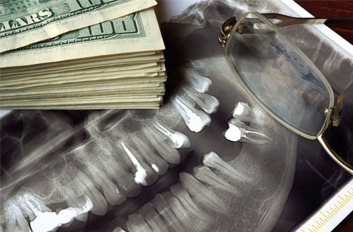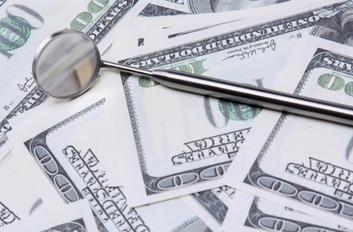Brooklyn, NY 11222
Tooth Extractions – Brooklyn, NY
Keeping Your Mouth Healthy by Removing Problematic Teeth
A decayed or broken tooth can often be repaired, but in certain emergency situations, it might be compromised to the point where you simply can’t keep it without putting your oral health at risk. Our team at Brooklyn City Dental can work with you to safely remove any unsalvageable teeth and come up with a plan for restoring your smile and protecting your overall oral health. Don’t hesitate to reach out if you think you may need a tooth extraction soon.
Why Choose Brooklyn City Dental for Tooth Extractions?
- In-House Dental Implant Placement Available
- Same-Day Emergency Appointments
- Conveniently Located Dental Office
Reasons Why Tooth Extractions Are Necessary

A tooth extraction is usually only performed in situations where saving the tooth is no longer an option. We may recommend it if:
- There is a severe infection that is starting to spread.
- The bone and tissue supporting the tooth are badly weakened due to gum disease.
- The tooth is injured and doesn’t have enough natural structure left to support a crown.
- Room needs to be created in your mouth for an orthodontic treatment.
If we do suggest a tooth extraction, we’ll be sure to give you a clear explanation of why it’s necessary. We’ll also give you an overview of the extraction process as well as an estimate of how much it will likely cost.
The Process of Removing a Tooth

Tooth extractions are normally classified as either simple or surgical. The kind you need largely depends on the state of the tooth being removed. A simple extraction can be performed on a fully erupted tooth, but a surgical extraction may be needed if the tooth is partially or fully impacted.
During a simple extraction, your mouth will be numbed, and the tooth will be loosened with an instrument called an elevator. Then we can use forceps to remove the tooth from its socket.
For a surgical extraction, your gums will need to be opened so that the tooth can be accessed. Sometimes it may be necessary to remove a small amount of bone along with the tooth. Like with a simple extraction, the area where the tooth is located will be numbed for the sake of your comfort.
Tooth Extraction Aftercare

It’s important to make sure that you’re prepared for the extraction itself, but you also need to get ready for what comes next. During the recovery process, you can use a cold compress to reduce swelling around the extraction site. If you were prescribed any pain relievers, take them as instructed.
You should also:
- Avoid strenuous exercise for a while in order to prevent unnecessary bleeding.
- Plan on only eating soft foods while avoiding anything hard or crunchy.
- Maintain good oral hygiene by brushing, flossing, and rinsing with salt water.
- Stay away from tobacco products of any kind.
If any of your post-extraction symptoms persist longer than expected, please call us right away.
Understanding the Cost of Tooth Extractions

Some patients tend to worry a little bit about the tooth extraction itself, but for others, nothing stressed them out more than paying for care. We completely understand that finances can be tricky, which is why we do everything that we can to make budgeting for our care easy.
We’ll give a complete estimate for what your tooth extraction will cost when we meet you, as well as some personalized advice for how you can make the care affordable. Until then, however, here’s what you should know about the cost of a tooth extraction.
Factors That Can Affect Tooth Extraction Cost

While it would be nice to be able to tell every patient what their tooth extraction will cost without having to meet them first, this isn’t really possible. Every person’s procedure will be a bit different, as is the overall cost of care.
Of course, you’ll need to consider the number of teeth you’ll need to have extracted, in addition to the kind of tooth that will need to be removed. Some teeth are also more difficult to remove than others. While we’ll be able to handle many procedures in-house, some of them will necessitate help from an external specialist; these professionals will have their own rates for their services.
You’re going to need to replace any teeth that you remove after the extraction is complete, so one element of the procedure worth considering is how you’re going to do that. Dental implants, dentures, and dental bridges will all incur their own cost.
Does Dental Insurance Cover Tooth Extractions?

Tooth extractions done for medically necessary reasons are often in the purview of what dental insurance will cover. Depending on the particulars of your plan, most people will see around 50% of the cost of their services paid for after their deductible has been met. That said, it’s important to talk to your insurance company in order to determine what your dental procedure is ultimately going to cost.
Other Options for Making Tooth Extractions Affordable

If you don’t have insurance, or if you haven’t met your deductible yet, you may need to pursue other options to make the care fit your budget.
Thankfully, we have several ways for you to do that. For one, we have a membership plan that can be a solid substitute for insurance, affording you substantial discounts on the care that you receive from us for a flat annual fee. We also frequently work with financing firms like CareCredit, which can allow you to split the cost of care across several months.
We’ll be happy to talk to you about this or any other options for paying for care, so if you’re interested, give us a call and we’ll bring you in for an appointment.
Tooth Extractions FAQs
Do Tooth Extractions Hurt?
Learning about the extraction process may be a little intimidating, but know that regardless of the method we use, we will make sure that you stay perfectly comfortable throughout the procedure. Beforehand, we will give you a local anesthetic, which will numb the area. As a result, you shouldn’t feel what we are doing while you’re in the chair. When the effects of the anesthetic wear off, you will probably feel soreness in your mouth, but it should be manageable with pain medicine and a cold compress.
How Much Time Will I Need to Take Off Work?
We strongly recommend taking two days off work to recover from a tooth extraction. If you have a job that requires a lot of activity, lifting, or hard labor, you may need to spend more time resting before returning to work. During the first 48 hours, you should take it easy and allow your mouth to heal. After that point, you can start to include more normal activities back into your day as tolerated.
Can I Have a Smoothie After a Tooth Extraction?
Although a smoothie is soft, drinking it or another beverage from a straw is off limits for the first 48 hours following a tooth extraction. The sucking motion can inadvertently cause a painful oral infection at the surgical site. You may have yogurt, ice cream, and other soft foods, but stay away from anything involving a straw or that could interfere with your healing.
Will I Need to Replace My Extracted Tooth?
In many cases, but not all, a removed or missing tooth needs to be replaced. If this is true in your situation, leaving a gap in your smile puts your remaining teeth at risk and can impair function as well as appearance. We can discuss your replacement options after you’ve had a chance to heal from the extraction procedure. These options include dental implants, dentures, and bridges. Together, we can determine which one works best for your smile.
